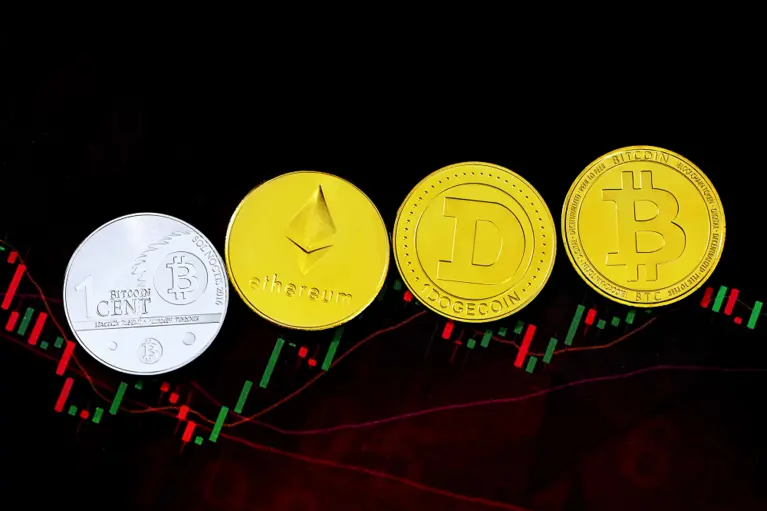For a long time, one argument in favour of holding crypto assets in general and bitcoin in particular in one's investment portfolio was that bitcoin is not correlated with other asset classes such as equities, bonds, gold or real estate. This would make crypto assets an effective diversification element in a portfolio. However, this was and is not the case. Historically, bitcoin has not had a stable correlation with other asset classes,' says Hartmut Giesen, responsible for Business Development Fintech, Digital Partners and Crypto/Blockchain at Hamburg-based Sutor Bank. Even the correlation between bitcoin and technology stocks, which is often seen as particularly close, is rather erratic, as figures from the Coinbureau platform show. In Giesen's view, cryptocurrencies should therefore not be seen as a separate asset class to further diversify a portfolio.
Correlation of bitcoin with tech stocks mostly high, but not stable
Historically, bitcoin has had a high correlation with technology stocks over longer periods of time. In fact, this trend is getting stronger - but the correlation is not stable.
As data from the Coinbureau platform shows, the 30-day correlation between bitcoin and the Nasdaq Composite reached a high of 0.9 in June 2024, before falling to -0.9 in July - where 1 indicates a perfect correlation. At the beginning of October, it is back at 0.9, close to 1. Such fluctuations are also typical over the longer term, according to Coinbureau figures. According to the figures, the correlation has fluctuated between -0.3 and 0.2 over the last five years. The more technology-oriented Nasdaq Technology 100 has a higher correlation with bitcoin than the broader Nasdaq Composite.
These figures show that bitcoin and technology stocks are more correlated in the short term than in the long term. They also show that the more technology-oriented the benchmark index, the stronger the correlation,' says Hartmut Giesen. Nevertheless, high correlation values often alternate with negative correlation values, especially in the short term.In general, bitcoins are influenced by similar macroeconomic forces as technology stocks - but only as long as there are no crypto-internal events that affect the price. When such events occur, the correlation sometimes drops very suddenly and sharply,' explains crypto expert Giesen.
This has been particularly evident in recent months: since December 2023, there has been a consistently high correlation, but this has been punctuated by short-term downward outliers, such as in February 2024, when regulatory and technological events influenced the crypto market, such as the approval of crypto ETFs or the halving of Bticoin. Another example is the high market liquidity that resulted from the sale of seized assets by the German authorities and the release of assets frozen as part of the bankruptcy of the crypto exchange Mt. Gox. This also caused the correlation to fall. Since then, the correlation has returned to moderate levels.
On the one hand, the correlation between bitcoin and tech stocks is erratic. At the same time, we see that the periods of high correlation are getting longer and are only interrupted by shorter periods of low correlation. This argues against using bitcoin as a stand-alone diversification element within a portfolio," concludes Giesen. Bitcoin and the other crypto assets that are highly correlated with it are therefore unsuitable as a systematic hedge that performs differently from technology stocks. "Bitcoin can be classified as a speculative technology stock rather than an asset class in its own right," says Giesen.
Four crypto-internal factors influence the correlation between bitcoin and tech stocks
According to the Coinbureau study, a total of four independent crypto-internal factors influence the correlation between bitcoin and technology stocks. The first factor relates to sentiment and speculation: investor behaviour, influenced by news and social media, drives volatility and speculation in the crypto market, weakening the correlation with technology stocks.
The second factor relates to technology development and adoption: advances and adoption of blockchain technologies can influence bitcoin's performance, while innovations such as AI and decentralised systems may play a greater role in the future.The third factor relates to crypto regulation: regulatory decisions, particularly in the US, have a strong impact on crypto prices, for example by classifying cryptocurrencies as securities or crypto ETFs. The fourth factor relates to market liquidity and institutional investors: the involvement of institutional investors and liquidity fluctuations influence price developments and reinforce the similarity of bitcoin to traditional technology stocks.



